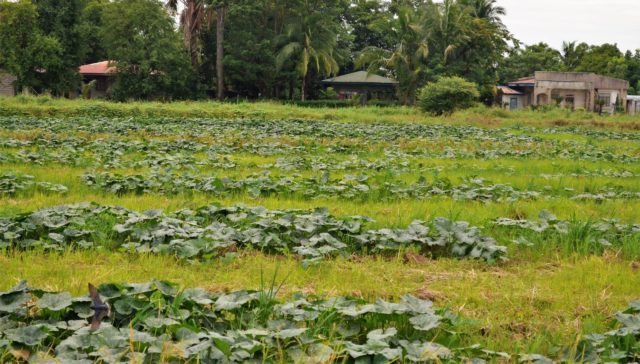Rice fields within the NIA-UPRIIS Division II are planted to vegetables. Contributed photo
TALAVERA, Nueva Ecija – Farmers belonging to several associations and the National Irrigation Administration pressed for crop diversification to “minimize the effects of climate change in irrigated agriculture,” a ranking official said on Saturday.
The NIA-Upper Pampanga River Integrated Irrigation System Division II headed by Engr. Alvin Manuel, Sr. in cooperation with farmer-irrigators of Murcon Creek Irrigation System, Vaca Creek Irrigation System, and Lower Talavera River Irrigation System adopted the diversified cropping scheme this season.
NIA-UPRIIS department manager Engr. Rosalinda Bote said their agency promotes crop diversification where farmers plant different cash crops in between rice planting as an intervention and strategy that maximizes the use of land.
“It also optimizes farm productivity and income forfarmers,” she said. “In this connection, the Division II office dedicated to ensure the continuous and abundant harvest within its service areas adopts interventions to reduce the possible effects of climate change particularly the supply of irrigation water.“
A number of farmers tilling a total of 883.54 hectares out of the 23,762.48 service area participated in the diversified cropping, the agency reported.
The diversification of crops provides a number of agricultural and economic benefits to the farmers, Bote said, adding “it also provides agronomic benefits in terms of pest management and soil quality.”
Hence, diversified cropping systems contribute to climate smart agriculture against extreme weather events and will serve as an alternative source of income to the farmers, she noted.
The Division II and UPRIIS under Bote are devoted to providing dynamic contribution to agricultural development by adopting innovative farming practices for the welfare of the farmer beneficiaries, a statement said.




